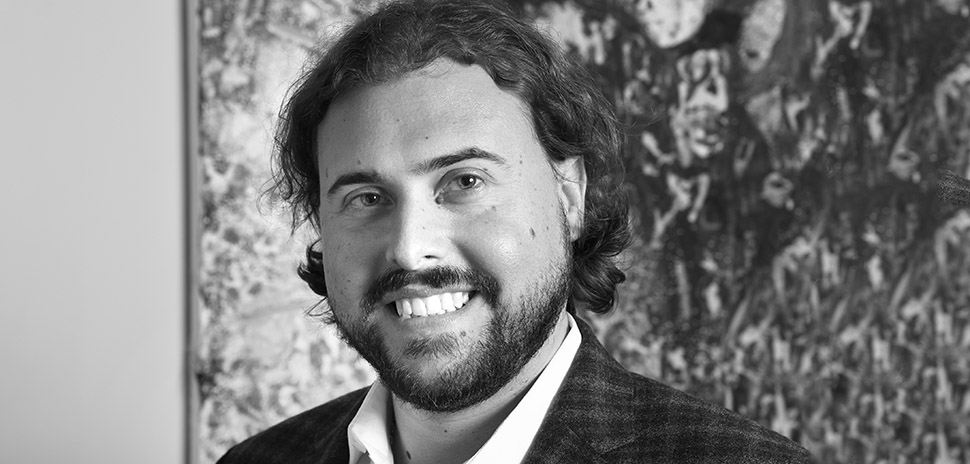Gore Range Capital, a venture capital firm that recently moved its headquarters from New York to Southlake, says its investment approach is simple: “we invest in what we know.”
Comprised of seasoned healthcare experts, the team uses its niche experience to take a hands-on approach that marries the operational focus of private equity with the guidance needed in venture capital. But they only focus on companies bringing one thing to market—innovations in skin health.
Gore Range was founded in 2015 to invest in early-stage skin health businesses. Today, the firm partners and works closely with industry pioneers who are finding new treatments, technologies, and techniques for dermatological conditions and better skin health.
Why? Gore Range says it wanted to channel its capabilities to “focus on our largest organ and the most visible manifestation of who we are.” Not only does skin health play a large role in physical appearance and identity, it can often lead to a variety of diseases and health conditions when treated poorly.
“At Gore Range, we are focused on early-stage investments and we take a broad definition within healthcare through the lens of skin health,” Ethan Rigel, managing partner of Gore Range Capital, says. “We look at anything that diagnoses, prevents, treats, regenerates, or enhances the skin, as well as at enabling IT and devices that enable patient care. We like to find companies where we can leverage our skin health networks and expertise that we’ve built over our careers to help companies achieve milestones faster and more efficiently.”
Gore Range closed its debut fund in 2019 and last year launched a second. Currently, the firm has made investments in 14 companies with six successful exits, according to its portfolio.
Rigel recently answered questions for early-stage entrepreneurs in a Q&A for TechFW client founders. Here’s his advice to emerging entrepreneurs looking for an investment.
What areas of skin health do you consider for investment?
We’re always open to new ideas. I love new ideas, and we’re always looking to learn. We look across skin health and also tangential areas, like ophthalmology. There’s a lot of focus by industry in inflammatory disease and autoimmune disease—we’re seeing really interesting things in psoriasis, atopic dermatitis, biologics, JAK inhibitors.
We’re also seeing innovative things in gene therapy and cell therapies. This is a pretty novel part of medicine right now; we think it’s a huge driver of precision medicine. The customization world that we’re all used to in other aspects of our lives, it is coming to medicine.
There are a lot of really interesting technologies in aesthetics as well; new and novel toxins that are longer onset and longer lasting, injectable scaffolds—think of these as ways to have your body re-grow vascularized tissue—as a way to replace implants. We think body contouring is going to be a really big thing as we are getting comfortable with surgery done on our face and in certain parts of our body. With scaffolds, you have this ability to do minor procedures to address specific problem areas for people and it could be really exciting.
You won’t see returns for a long time in early-stage investing. How do you manage risk?
There are a couple of things that we do.
First, we try to avoid binary outcomes. We try to avoid single molecule, [single indication] companies, single application devices, things like that. We like to have multiple ways to win.
The other is we try to invest at inflection points where we think that within our hold period and with our capital, we can get the company to an interesting exit point. A big thing with that for us is knowing a lot of the acquirers in the space. We spend a lot of time not just talking to entrepreneurs, but also to talking to the potential buyers, the LEO Pharmas of the world, Sanofi and Lilly and Allergan and all those folks, to understand what their portfolios look like, what are the holes in their portfolios, and where assets need to get for [them] to be exciting for them. We will look at assets that are pre-clinical, but we know that once we get through maybe [phase] 1B or 2A, we have one or two companies that we know that are really excited about the asset.
The nightmare that venture funds have, which is the nightmare of the LPs (our investors), is that you invest in a really cool molecule and then it stays in your fund for 20 years and then you can’t close the fund and your LPs become very, very upset. And so, we try and avoid that the best we can.
When a founder is looking at doing a capital raise, going into negotiations—whether it’s angels or VCs—they’re looking at a note or even priced rounds. What are the terms the founder should be really focused on?
You need to have counsel that has done venture deals and knows the market and what’s an appropriate ask. Focus on the most important things: focus on valuation, focus on ownership, look at the option pool. Make sure that you know that you have enough in there.
Look at how that dilution happens, look at [liquidation] preference. Think about the rights. Think about the rights you’re giving me [the VC], think about the rights you’re giving board members, think about the rights you’re giving classes of stock.
These aren’t going to seem like a big deal when you’re reading them, but when a difficult decision has to be made, who gets to make that decision is really important. And frankly, you should try and make sure that you have a say in as much of it as possible. That will be part of the negotiation.
Generally speaking, we cannot run these companies without you, so while these rights are important, they’re not as important as maintaining a good relationship between both parties.
What are your thoughts on company ownership structures and shared vesting?
I like to see cap structures that have as many people in the company having equity or options as possible. It doesn’t need to be a lot, but it gives everyone some ownership and lets them act as principals.
I would encourage you to think about that and be generous with those in the early stages. It’s also a great way to offset cash compensation.
Do put the equity grant or options on a vesting schedule. No one likes having someone on their cap table who didn’t earn it. There are lots of different kinds of vesting schedules; we generally use a one-year cliff and pro rata thereafter.
Any tips for first-time founders on cap table management?
Use Carta. Once you start taking more than just a handful of investors, and when I say a handful, I mean [beyond] your friends and family round, and if you start taking 10, 20 investors in a note, Carta is going to be your best friend. It makes managing your investors much easier, I don’t have to bother you about my ownership, I can see my ownership and who’s in the cap table. It’s about making it as frictionless as possible for people that might have those information rights, or when you’re completing diligence for fundraising.
Having the right tools is true in various stages [and aspects] of your business too. Use Gusto for HR. Find the right accounting package. If you use Google, use Streak for CRM. It’s worth that extra little bit of money to make your life easier so you can focus on executing and growing your business.
How do VCs view startups leveraging partnerships with universities to develop key functions and assets of the company? Is it a red flag?
Well, it’s not a red flag. It depends on the university program—you have to make sure that by the time we’re investing that you have a licensing agreement in place and you have to own the rights. We look at these agreements as part of our diligence process along with the associated intellectual property.
Intellectual property is very important in what we do; we’re looking at drugs and compounds and so we’re making sure that you have good IP, defendable IP. But intellectual property has to make sense for you; don’t get it for the sake of it. It’s got to be key to your business.
This Q&A was edited for brevity and clarity. Alex Edwards contributed to this report.
![]()
Get on the list.
Dallas Innovates, every day.
Sign up to keep your eye on what’s new and next in Dallas-Fort Worth, every day.






































































